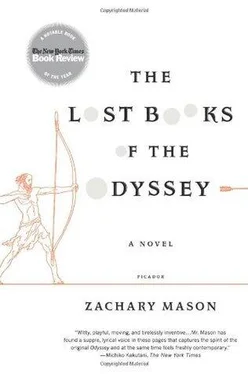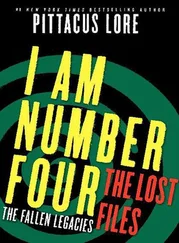That evening I called a general assembly. With the heat of the bonfire on my back and the eyes of every Greek on me I told them that in one of my fits Athena had revealed that though Troy could not be taken, the war could be won. My announcement was greeted with hoots of derision. Loud voices wondered how this was possible. I shouted, “By bringing an end to the cause of this war, to Helen of the house of Tyndareus!” And I held up her hair, instantly recognizable in the firelight. A moan went up from the men and Menelaus leapt to his feet trembling, knocked over his wine-cup and called for a sword, a sword. I threw her hair at his feet, saying, “Your wanton wife is dead and there’s your honor cleansed. The war is won, let us go home.” The Spartans gathered around him and some fool put a blade in his hand. The rest of the men gathered behind me, homesick and warsick, and turned hard gazes on the Spartans.
I had hoped that the Spartans, outnumbered, would back down. Menelaus and Agamemnon would bear me a grudge till the end of their days but let them, in everyone else’s eyes I would be a hero — Odysseus, who had won the war at a stroke and abased the High King’s pride. Unfortunately I had underestimated Spartan discipline and the hold the Spartan kings had on their men. They got their arms and my followers got their arms and battle was imminent when the Trojans attacked.
There must have been a spy in our camp — they could hardly have found a more vulnerable moment. We were disorganized, distracted, half-armed, at odds with each other and tightly clustered. They rushed us from all sides. The fighting was bitter and in the first minutes I thought we would be overwhelmed. I fought my way away from the bonfire and found a store-tent to hide in as shrieking filled the night behind me.
The night passed with glacial slowness except when I cut the throat of a Trojan soldier who came in looking for spoil. I had hoped that our numbers would outweigh their initiative but by the time the false dawn lit the sky things were not much quieter — the Trojans were making an all-out effort to break us. It is strange to say that it occurred to me to find my men and rally them to the banner of the Laertides but I quickly suppressed this pointless impulse.
I borrowed the dead Trojan’s bloodstained cloak and helmet, reluctantly left the relative security of the tent and made for the camp’s edge. Trojans saw my helmet and assumed I was one of them. Greeks made to attack me till I hailed them in their own language. I passed a few knots of melee, my brothers in arms doing noble deeds and dying. I was terrified for my own life and did nothing to help them, though the circumstances of their deaths are etched in my memory. I clambered over the rude timber walls at the camp’s boundary and dropped down onto the sand below. From within the wall came cries of agony and the roar of flames — the Trojans must have gotten at the ships. Without, all was peaceful — a wide empty beach stretched before me and Troy was just visible on my left. It seemed unnatural that I could leave so easily. I threw my borrowed helmet into the surf and started walking.
After an hour the war seemed as though it had been a dream. I looked back and saw black pillars of smoke over the camp and over Troy.
I took stock of my situation. I had a sword, bread and a bag of silver. I was on a coast where I had no friends and many enemies, though few of them knew my name. Having no alternative, I kept walking south along the shore. I had heard of a city not far from Troy and in two days reached it. The guard at the gate asked me who I was and what I wanted. I had a mad impulse to say, “I am a sinister-minded foreigner who has lately been making war on the principal city of your country in hopes of rapine, pillage and blood-soaked revenge,” but instead said I was an itinerant bard hoping to sing for my supper. The guard looked at my sword and said I carried a strange sort of lyre. I replied that bandits abounded, many of them desperate and dangerous renegades from the war up north, and I had discovered by trial and error that it was more effective to hit them with a sword than a musical instrument. Indeed, my lyre had not survived the first trial but I was pleased to say my sword was in good shape even after many encores — my most popular ballad was “Feint Toward the Heart and Slash the Hamstring” but “Throw Sand in Their Eyes and Stab the Sword-Hand” was gaining popularity.
I found a place with the lord of the city. I had been afraid it would be galling to sit at the lower table but in the event found a bard’s station unobjectionable — I was given all I needed and there was no offensive familiarity. At first I sang the old standbys—“Theseus in the Repeating Labyrinth,” “The Tale of Medusa’s Shade,” “Athena’s Lover” and the like. I had the rapt attention of everyone from the lord to the potboy. Even the dogs under the tables watched with heads cocked.
Refugees trickled in over the following weeks and from their accounts I pieced together the story of the war’s end. The Trojans had overplayed their hand — they set fire to the Greek ships but in their race to the shore left many Greek soldiers behind them, intact and desperate. Diomedes, an independent-minded Greek general, wrote off the ships as a loss and had his soldiers mount up and race for Troy, emptied of men, its gates hanging open. The Greeks erupted into the city and gave vent to their rage. When the Trojans saw the smoke they rushed home to stop the sack and hours and then days of vicious house-to-house fighting followed, until Troy and the Greek ships were all in ashes, the soldiers slain or scattered, both forces broken. The only Greek ship to survive was Agamemnon’s, which had been anchored out in the bay — he and a handful of men sailed away that night, their sails filled with the spark-laden wind pouring out of the burning city, leaving their countrymen to get home as best they could.
I was concerned that the refugees would recognize me but no one thought to look for a Greek captain in the face of the bard sleeping on sheep-skins by the hearth. Still, when a month had passed the city was thick with displaced Trojans and I decided to go.
There were few bards that far out on the periphery of the Greek-speaking world and I flourished. I never failed to get applause when I gave them the classics and soon became confident enough to invent material. I never went as far as sussing out the local headman’s lineage and singing a paean — I preferred to keep an emotional distance from my patrons. I took to telling the story of Odysseus of the Greeks, cleverest of men, whose ruses had been the death of so many. (In the same moment I formulated this epithet, it occurred to me that it was Helen’s treacherous maid who told the Trojans when to attack. I wondered whether she was wealthy now or dead, or perhaps both, lying in a beehive tomb with gold and wine jars piled around her.)
It was when I was a guest in Tyre that I first heard another bard singing one of my songs and it occurred to me that I had in my hands the means of making myself an epic hero. What good is the truth when those who were there are dead or scattered? I took to rearranging the events of Troy’s downfall, eliding my betrayals and the woman-killing, and making a good tale of it. My account of Odysseus’s heroics changed according to my mood. Sometimes I led the defence as the Trojans went to burn the ships, sometimes I put myself in Diomedes’ boots and led the counter-attack on Troy. Sometimes Athena loved me so much that she shattered the Trojan curtain wall with a thunderbolt.
Diomedes’ cavalry, the maid’s bag of gold and the hours hiding in the airless tent combined somehow to give me the idea of Greek soldiers ensconced in a treacherous wooden house. The ruse appealed to me and though I could never come up with a fully satisfactory reason why the Trojans would blithely drag a suspicious fifty-foot-tall wooden statue into their city, I glossed over their deliberations and the story was well received. I told the story so many times that I sometimes thought I really remembered Menelaus breathing fast and shallow in the stuffy darkness of the horse’s belly.
Читать дальше












